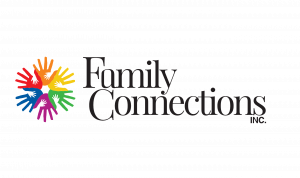Early Childhood Classes/Training

The Wisconsin Pyramid Model is a framework for implementing a multi-leveled system of supports designed to:
- enhance social and emotional life skills of young children
- promote the development of data-supported policies and practices that are culturally responsive and equitable
- provide early care and education providers with practice-based coaching to ensure that they have support to integrate and use practices
Foundation Courses:
Introduction to the Early Child Care Profession (45 hours)
Provides entry level knowledge and skills for individuals as they begin to or intend to care for children in group or family child care settings. Learners explore rules and regulations governing group and family child care and the responsibilities of child care providers. This course fulfills introductory non-credit course requirements as specified in the Department of Children and Families (DCF) Chapters 250 and 251 for family and group child care in Wisconsin’s Administrative Code.
Skills and Strategies of the Child Care Teacher (45 hours)
The Skills and Strategies Class will prepare individuals to be successful in the role of a Lead/Head Child Care Teacher in an early childhood setting. This will be accomplished by thoroughly examining the subjects of curriculum planning and activity selection in a developmentally appropriate early childhood environment. Additional topics to be covered include exploring strategies to involve parents and the role of observation in a developmentally appropriate program. Child guidance and professionalism are also further developed.
This class is one of the required classes for all Lead/Head Teachers in Group Child Care programs.
Fundamentals of Infant and Toddler Care
This class will prepare participants to be successful working with infants and toddlers in a Child Care setting. This will be done by thoroughly exploring the topics of: Professionalism; Growth and Development from birth to 2 yrs; Licensing Regulations; Environments and Routines; Planning Age Appropriate Curriculum; Health & Safety; Child Guidance; and Professional Communication.
Fundamentals of Family Child Care (12 hours)
The main objective for the Fundamentals of Family Child Care class is to introduce information to help individuals successfully establish a Family Child Care Business that is in accordance with Wisconsin State Regulations and Administrative Codes. This will be accomplished by examining business, programming, and marketing strategies as they apply to the field of early care and education.
This class is required for all individuals looking to establish a child care business from their place of residence. This applies to all Licensed and Certified Family Child Care programs.
Strengthening Families through Early Care and Education with Mandated Reporter (3 hours)
In this 3-hour training, participants will learn about the 5 protective factors which are demonstrated to strengthen family function. They will also be able to identify at least three next steps that they could take following the training to build protective factors within their early care and education setting and available resources to implement ideas. Participants will also be able to identify Strengthening Families resources. SCAN-MRT training is included.
Abusive Head Trauma Prevention Training for Child Care Providers (2 hours)
The Wisconsin Legislature’s 2006 Prevent Violence Against Children Act went into effect in April 2007. The Act required that all child care providers working with children under age 5 years receive training in Shaken Baby Syndrome (SBS) Prevention and how to manage crying, fussing, or distraught children. Wisconsin’s required Shaken Baby Syndrome (SBS) Prevention Training for Child Care Providers has been updated and renamed Abusive Head Trauma (AHT) Prevention Training for Child Care Providers. By September 1, 2020, department-approved SBS trainers offering a stand-alone class, department-approved agencies providing non-credit, department-approved, entry-level training courses (Introduction to the Child Care Profession and Fundamentals of Infant and Toddler Care), instructors of Wisconsin Technical College courses for credit, and high school teachers of the DPI Assistant Child Care Teacher course must begin using the new AHT Prevention Training for Child Care Providers developed in partnership by the Wisconsin Child Abuse and Neglect Prevention Board and the Wisconsin Department of Children and Families, in consultation with the National Center on Shaken Baby Syndrome.
Shaken Baby Syndrome is one form of Abusive Head Trauma. AHT also includes injury, not only to the brain, but to the skull and spinal cord, which can result from shaking or from inflicting trauma on the head by other means, such as throwing, intentionally dropping, striking, or other forms of impact. Abusive Head Trauma Prevention Training for Child Care Providers addresses the latest information on:
– Abusive Head Trauma
– The Period of Purple Crying
– Strategies and challenges of soothing
– Coping with frustration
– Having a plan and educating others
SIDS: Sudden Infant Death Syndrome (1hour)
There are things that parents and caregivers can do to reduce the risk of a SIDS death. During this workshop you will learn more about SIDS and how to prevent it.
Protective Factors:
The Protective Factors Framework helps professionals who work with children and families in promoting the optimal development of all children while protecting vulnerable children from maltreatment.
An introductory course that provides an overview of the Center for the Study of Social Policy’s Protective Factors Framework, comprised of five evidence-informed family Protective Factors. This course also focuses on utilizing a strengths-based approach to interacting with families and ways to incorporate Protective Factors in your everyday work.
The Strengthening Families Protective Factors Framework is a national and international initiative that aims to develop and enhance five specific characteristics that help The Center for the Study of Social Policy develop the framework with funding from the Doris Duke Charitable Foundation.
CPR: (3hours)
The CPR class covers adult, child, and infant CPR procedures, as well as AED (Automated External Defibrillator) use, barrier device usage, and relief of chocking for all ages. This is a two-year certification and letters verifying course completion will be given at the end of class. Cards will be mailed to students by the instructor within 10-14 days following the class. All classes are appropriate for new certification and renewal.
To request a training, contact Michelle Christus michellec@familyconnectionscc.org


